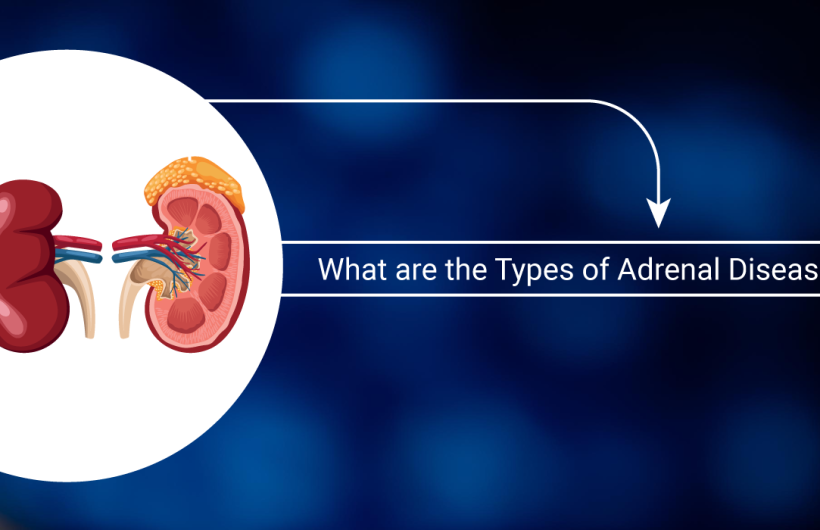The human body is a complex and intricately designed machine, and the adrenal glands play a crucial role in maintaining its balance. These small, triangular-shaped glands, situated on top of each kidney, produce hormones that regulate various bodily functions. However, like any other part of our body, the adrenal glands are susceptible to disorders. In this article, we will delve into the realm of adrenal diseases, exploring the different types that can affect these vital glands.
Understanding the Adrenal Glands
Before we delve into the types of adrenal gland disorders, let’s take a moment to understand the basic functions of the adrenal glands. These glands consist of two parts – the adrenal cortex and the adrenal medulla. The adrenal cortex produces hormones essential for life, while the adrenal medulla produces adrenaline, which is crucial for the body’s “fight or flight” response.
Types of Adrenal Gland Disorders
A. Addison’s Disease
Addison’s disease is a rare disorder wherein the adrenal glands do not produce enough cortisol and, sometimes, aldosterone. Cortisol helps regulate metabolism, while aldosterone controls sodium and potassium balance. Symptoms of Addison’s disease include fatigue, weight loss, and low blood pressure.
B. Cushing’s Syndrome
Cushing’s syndrome results from an excess of cortisol in the body. This can be caused by prolonged use of corticosteroid medications or by the body producing too much cortisol. Common symptoms include weight gain, high blood pressure, and changes in skin appearance.
C. Congenital Adrenal Hyperplasia (CAH)
Congenital adrenal hyperplasia is a group of genetic disorders that affect the adrenal glands from birth. It can lead to deficiencies in cortisol and aldosterone. CAH may cause abnormal development of sexual organs in both males and females.
D. Hyperaldosteronism
Hyperaldosteronism, also known as Conn’s syndrome, occurs when the adrenal glands produce too much aldosterone. This hormone regulates sodium and potassium levels in the body. Excess aldosterone can lead to high blood pressure, muscle weakness, and low potassium levels.
E. Adrenal Insufficiency
Adrenal insufficiency is a condition where the adrenal glands do not produce enough hormones. This can result from diseases affecting the adrenal glands or from the abrupt cessation of long-term corticosteroid therapy. Symptoms may include Adrenal fatigue, weakness, and weight loss.
F. Adrenal Tumours
Tumours can develop in the adrenal glands, either benign or malignant. Adrenal tumours can disrupt hormone production, leading to various disorders. Depending on the type of tumor, symptoms may vary and can include abdominal pain, unexplained weight loss, and changes in hormonal levels.
G. Adrenoleukodystrophy (ALD)
Adrenoleukodystrophy is a rare genetic disorder that affects the adrenal glands and the nervous system. It leads to the accumulation of fatty acids, causing damage to the myelin sheath of nerve cells. Symptoms can range from behavioural changes to neurological deficits.
H. Pheochromocytoma
Pheochromocytoma is a rare tumour that develops in the adrenal medulla, causing an overproduction of adrenaline and noradrenaline. This can lead to episodes of high blood pressure, rapid heart rate, and sweating. Prompt diagnosis and treatment are essential to manage this condition.
I. Adrenal Haemorrhage
Adrenal haemorrhage, also known as Waterhouse-Friderichsen syndrome, is a rare but serious condition characterised by bleeding into the adrenal glands. It can be caused by infections, trauma, or anticoagulant therapy. Symptoms include abdominal pain, fever, and shock.
Diagnosis and Treatment
Diagnosing adrenal disorders often involves a combination of medical history, physical examination, and specialised tests. Blood tests, imaging studies, and hormone level assessments help healthcare professionals determine the specific disorder.
Treatment varies depending on the type of adrenal disorder. In some cases, medications may be prescribed to regulate hormone levels. Surgical intervention may be necessary to remove tumours or manage certain conditions. Lifestyle modifications, such as stress management and dietary changes, may also play a role in managing adrenal disorders.
Conclusion
In our body’s functions, the adrenal glands play a pivotal role in maintaining balance. Understanding the different types of adrenal disorders is crucial for early detection and effective management. From Addison’s disease to adrenal tumours, each disorder presents unique challenges, but advancements in medical science offer hope for better diagnosis and treatment. If you’re in search of committed adherence to treatment plans and diligent monitoring, Dr. Moxit Shah is the expert to consult. As an esteemed Endocrinologist, he specializes in diagnosing and treating health conditions associated with body hormones, along with various types of diabetes. Dr. Shah excels in effectively managing steroid-induced diabetes, offering comprehensive care and unwavering support.






